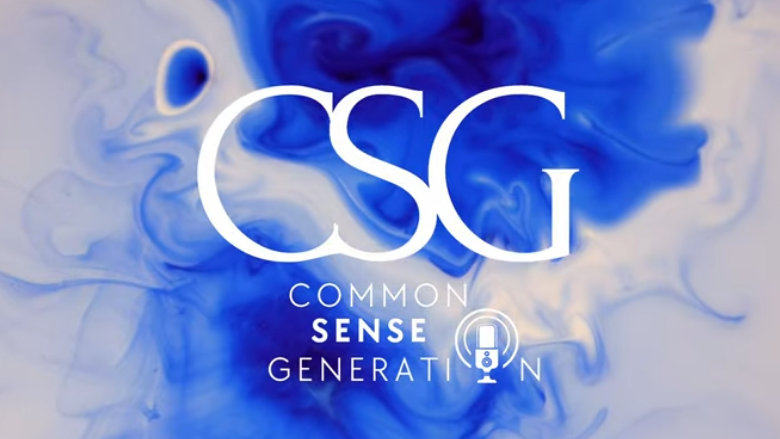Common Sense Generation: How to live a full life and use reason?
Why do I prefer reading Burke to Rousseau?
Why can't a perfect state be created for all the people of the world? What is the principle of subsidiarity? Why shouldn't the central government look for a wife for us? Professor Agnieszka Nogal answers these and other questions in an interview with Common Sense Generation.
- “It was during my law studies that I only realized the importance of discussing the law and the legitimacy of a given legal system. How should the law work? What kind of people are needed to make decisions?” – admits Prof. Agnieszka Nogal, head of the Department of Philosophy of Politics at the University of Warsaw. In the interview, she tries to justify why it is worth doing philosophy at all and how much philosophy there is in politics, as well as from which philosophical decisions a certain legal and political order in the state results. – “People sometimes think that this is the established order, or that it has always been this way, or that it is a matter of the will of one person, and I want to show that this should be a matter of discussion, that is part of practical rationality” – adds the author of the book "What about this freedom?".
The starting point of the conversation is the recognition that there are two different visions of human nature, on which the model of political system is then built. One approach assumes the existence of an "ideal human being" against whom law, public institutions and political order can be standardized. This was the position of French philosopher Jean-Jacques Rousseau. The second approach speaks of rejecting idealistic visions of man "in general" and focusing on specific people whose life practices depend on the culture in which they grew up, latitude, or tradition. This was advocated by the British thinker Edmund Burke.
- “It is very important to me when you talk about the principle of subsidiarity. It indicates that there is no ideal state model, because the state has to respond to the specific problems of a community” – explains Prof. Agnieszka Nogal in an interview with Maria Kądzielska-Koper. – “There is no ideal vision for education, health care system, because we have different problems” – she adds. The professor illustrates this argument with an example from architecture, an ideal house that would stand simultaneously in Africa and the Arctic. She points out that this is unfeasible, and that expecting ideal solutions that would solve all the world's problems must inevitably lead to some form of political violence and an attempt to realize utopia. – “We want to change everything, make a revolution, make a great leap to paradise, and during this leap we realize that we have landed in hell” – Maria laughs.
– “Yes, exactly” – replies the professor – “And in this hell we have been many times in history” – she adds.
We invite you to view the full interview with a choice of English or Polish subtitles.
Read also
Common Sense Generation: Former adviser to Mike Pompeo – China should not be underestimated
The former director of policy planning at the U.S. State Department reminds us of the challenge that China poses to the world order and to U.S. strategy, regardless of who wins the White House election. Moreover Berkowitz urges young people in the West to learn Mandarin.





Comments (0)